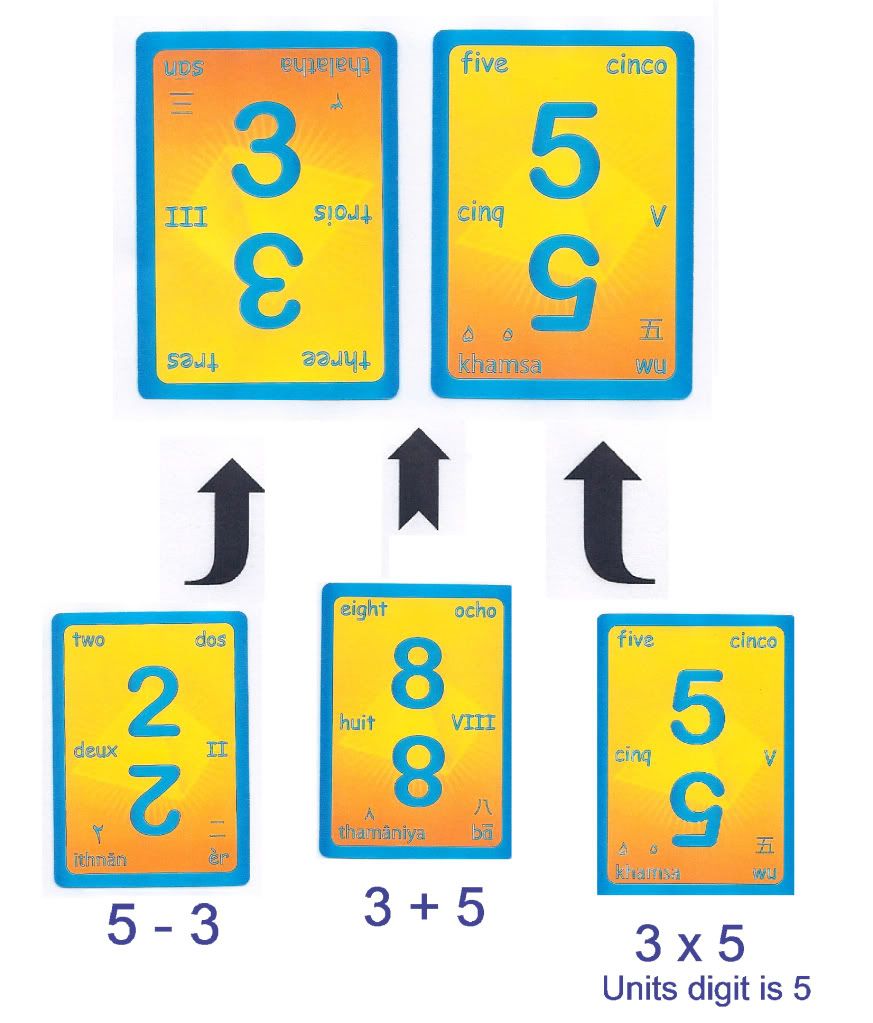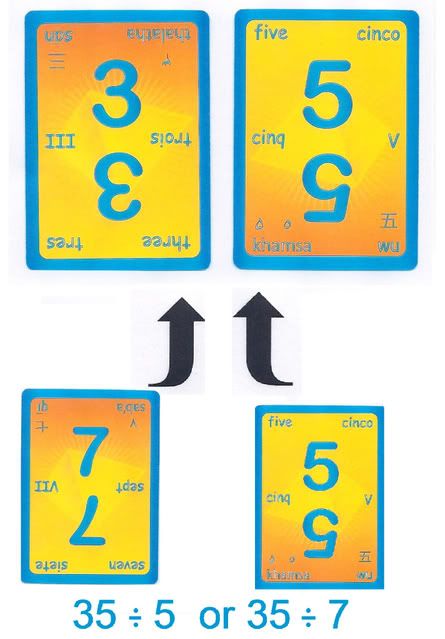
One of the first products the Homeschool Crew received this year to review was the Pyramath by I See Cards. While playing the game, the student will be practicing addition, subtraction, multiplication, and division facts to build a pyramid of cards. I'll confess right up front that math is my Schnickelfritz's favorite subject. In fact, I will often dangle it as the carrot to get him to complete his spelling or reading assignment. I'll also say that if I wasn't already calling him Schnickelfritz (a German endearment), the next most appropriate pseudonym for him would be "Young Mr. Competitive." Pyramath was an instant hit at our house. We play it for fun outside school hours (although we homeschoolers realize that learning never ends), but I will try to review this product for the parent trying to find a fun way for a struggling student to drill math facts.

The playing cards display both roman and arabic numerals and their names written in five languages. The game begins by laying 5-7 cards side by side. Taking turns, each player draws a card and tries to place it over two adjoining cards. In order to do so, it must be the answer to an equation made by adding, subtracting, multiplying, or dividing the two original cards. I've created an example using 3 and 5 as my base cards.

In cases where the equation creates a two digit answer (3 x 5 above) we only focus on the units or ones digit. The weak link in Pyramath comes from practicing division facts. Besides dividing a number by itself or by one, there are a very limited opportunities to divide a one digit number by another. Since division is our focus in math this year we had to come up with a new rule for Pyramath. We chose to treat any adjoining cards as a two-digit number. Then we could place a connecting card over them if it was a factor of that number.

The website includes rules for variations on the game. You can also play 5-card and 7-card solitaire versions online. (WARNING: These games are addictive. Do not play if you have dinner on the stove or other reviews to complete). If I were playing this to reenforce math facts I would stick to the basic game and require both players to vebalize the equation they're using as they palce their cards. This will help you as the teacher catch any math errors right away. You may also see that the students areoverlooking opportunities to play cards because they choose to avoid the harder facts and just stick with addition or subtraction. It may be necessary to give gentle nudges--"Do you see any numbers you can multipy that will end in 8?"
In addition to Pyramath, I See Cards carries Fractazmic (fractions) and Prime Bomb (prime numbers) for math card games. Each deck retails for $6.95. I see these games as inexpensive tools and you can customomize the rules to grow as they improve in math. To see what others on the homeschool crew think about Pyramath click here.

No comments:
Post a Comment